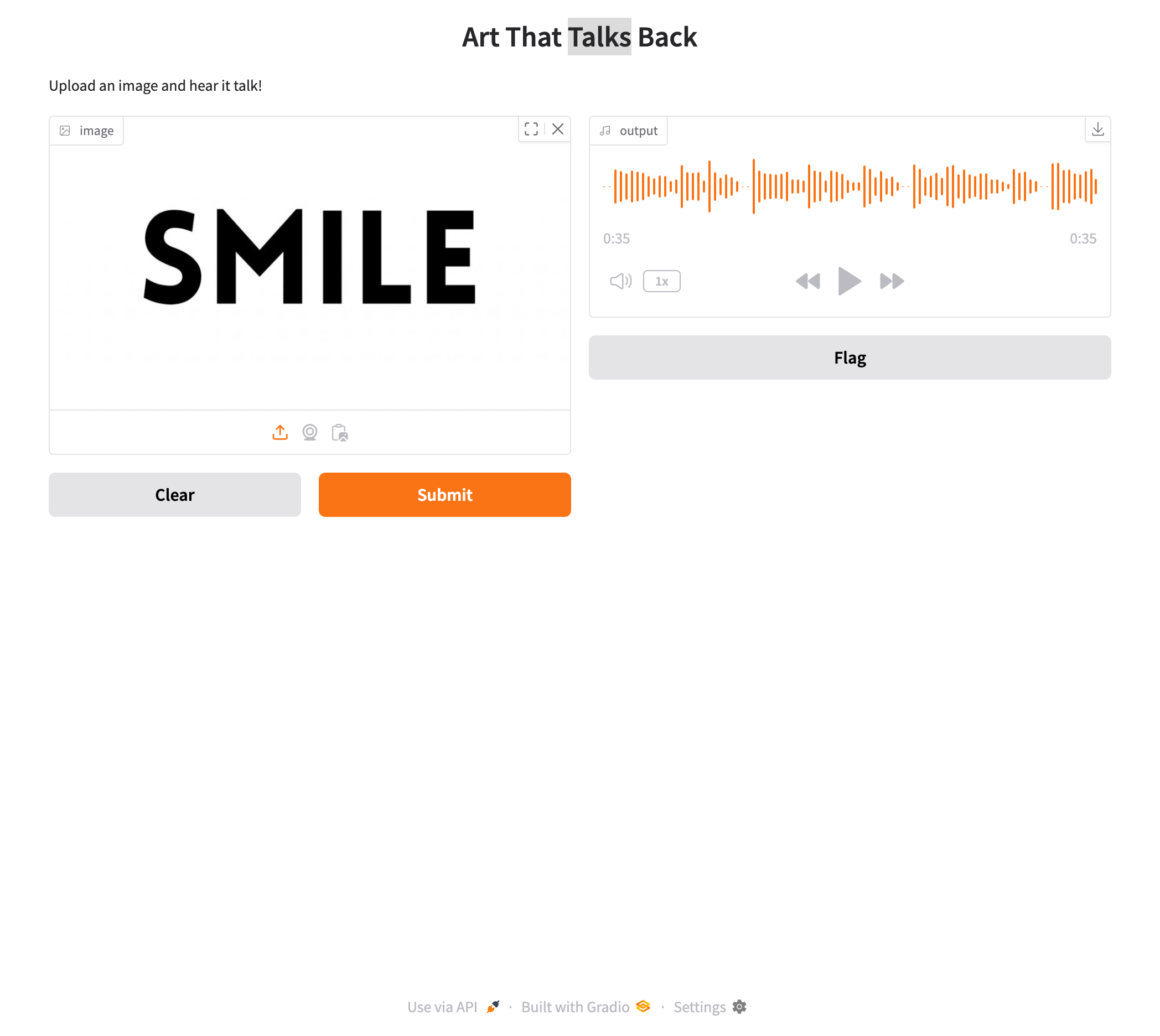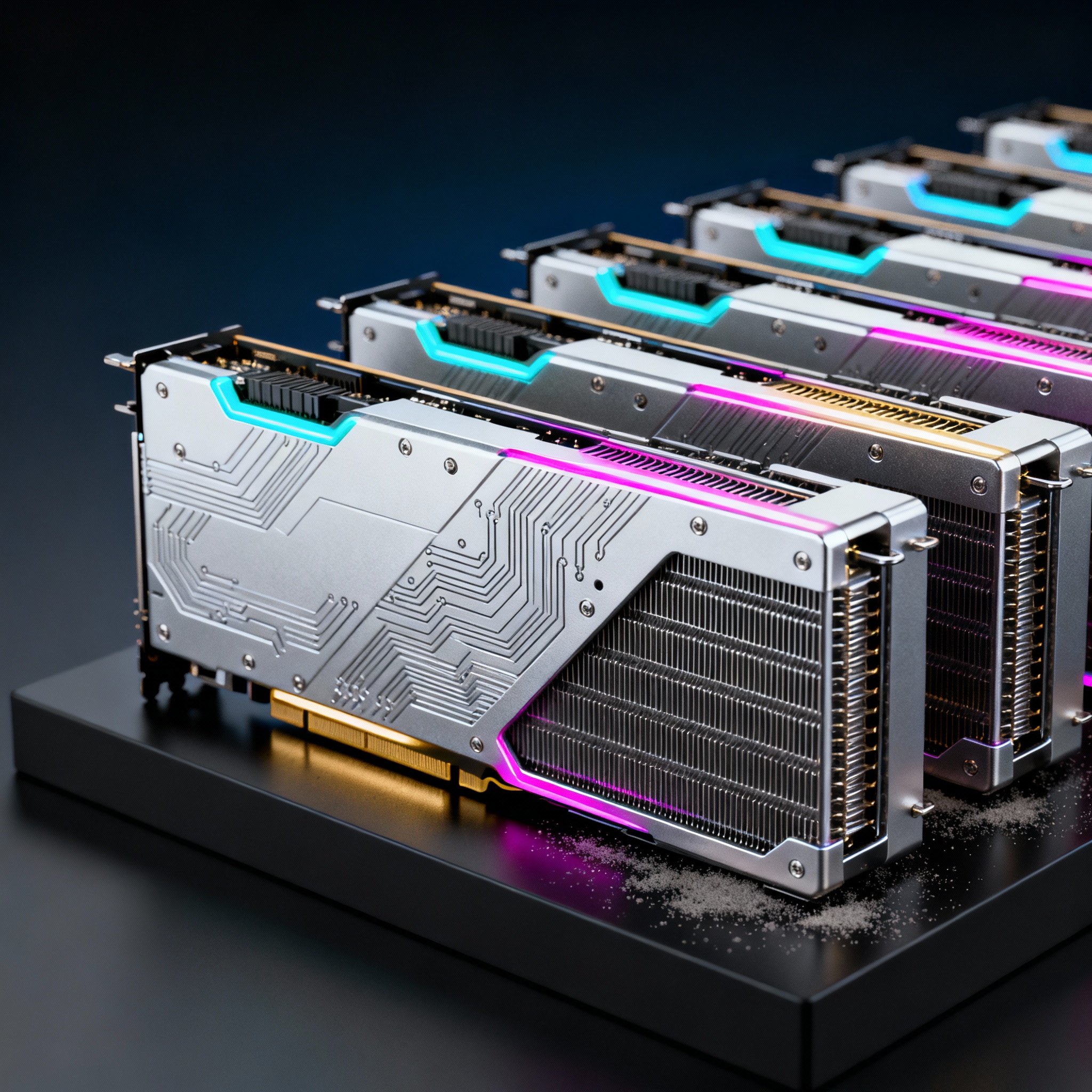Qwen3-Max-Thinking state-of-the-art reasoning model at your fingertips!

Imagine going to an art gallery where paintings tell their stories. That’s what "Talking Images" do in practice. This tutorial shows you how to make art speak using DeepInfra models. We are going to use:
1-) deepseek-ai/Janus-Pro-7B
2-) hexgrad/Kokoro-82M
Setting Up Environment
First, let’s set up your environment. You’ll need these packages. Here’s the content of requirements.txt:
gradio
requests
python-dotenv
pillow
scipy
numpy
Venv Environment Setup
Show Venv Tutorial
python -m venv venv && (venv\Scripts\activate.bat 2>nul || source venv/bin/activate) && pip install -r requirements.txt
Create .env File
Next, create a .env file in your project folder. Copy your DEEPINFRA_API_TOKEN into it. Your .env file should look like this:
DEEPINFRA_API_TOKEN=your-api-token-here
Replace your-api-token-here with your actual DeepInfra API token.
The Code
Here’s the Python code that makes your images talk. It uses Janus-Pro-7B to describe the image and Kokoro-82M to turn that description into audio.
import os
from io import BytesIO
import gradio as gr
import base64
import requests
from dotenv import load_dotenv, find_dotenv
from scipy.io import wavfile
import numpy as np
_ = load_dotenv(find_dotenv())
def analyze_image(image) -> str:
url = "https://api.deepinfra.com/v1/inference/deepseek-ai/Janus-Pro-7B"
headers = {"Authorization": f"bearer {api_token}"}
buffered = BytesIO()
if image.mode == "RGBA":
image = image.convert("RGB")
format = "JPEG" if image.format == "JPEG" else "PNG"
image.save(buffered, format=format)
files = {"image": ("my_image." + format.lower(), buffered.getvalue(), f"image/{format.lower()}")}
data = {
"question": "I am this image. You must describe me in my own voice using 'I'. State my colors, shapes, mood, and any notable features with precise detail. Examples: 'I have clouds,' 'I contain sharp lines.' Be vivid, thorough, and factual."
}
response = requests.post(url, headers=headers, files=files, data=data)
return response.json()["response"]
def text_to_speech(text: str) -> tuple:
url = "https://api.deepinfra.com/v1/inference/hexgrad/Kokoro-82M"
headers = {
"Authorization": f"bearer {api_token}",
"Content-Type": "application/json"
}
data = {
"text": text
}
response = requests.post(url, json=data, headers=headers)
res_json = response.json()
audio_base64 = res_json["audio"].split(",")[1]
audio_bytes = base64.b64decode(audio_base64)
audio_io = BytesIO(audio_bytes)
sample_rate, audio_data = wavfile.read(audio_io)
return sample_rate, audio_data
def make_image_talk(image):
description = analyze_image(image)
sample_rate, audio_data = text_to_speech(description)
return sample_rate, audio_data
if __name__ == "__main__":
api_token = os.environ.get("DEEPINFRA_API_TOKEN")
interface = gr.Interface(
fn=make_image_talk,
inputs=gr.Image(type="pil"),
outputs=gr.Audio(type="numpy"),
title="Art That Talks Back",
description="Upload an image and hear it talk!"
)
interface.launch()
Final Look

Try It Yourself!
Ready to hear your own art talk back? Grab yourself an image, run the code, and upload it. Do not forget to follow us on Linkedin and on X.
 Introducing GPU Instances: On-Demand GPU Compute for AI WorkloadsLaunch dedicated GPU containers in minutes with our new GPU Instances feature, designed for machine learning training, inference, and compute-intensive workloads.
Introducing GPU Instances: On-Demand GPU Compute for AI WorkloadsLaunch dedicated GPU containers in minutes with our new GPU Instances feature, designed for machine learning training, inference, and compute-intensive workloads. Enhancing Open-Source LLMs with Function Calling FeatureWe're excited to announce that the Function Calling feature is now available on DeepInfra. We're offering Mistral-7B and Mixtral-8x7B models with this feature. Other models will be available soon.
LLM models are powerful tools for various tasks. However, they're limited in their ability to per...
Enhancing Open-Source LLMs with Function Calling FeatureWe're excited to announce that the Function Calling feature is now available on DeepInfra. We're offering Mistral-7B and Mixtral-8x7B models with this feature. Other models will be available soon.
LLM models are powerful tools for various tasks. However, they're limited in their ability to per... Qwen API Pricing Guide 2026: Max Performance on a Budget<p>If you have been following the AI leaderboards lately, you have likely noticed a new name constantly trading blows with GPT-4o and Claude 3.5 Sonnet: Qwen. Developed by Alibaba Cloud, the Qwen model family (specifically Qwen 2.5 and Qwen 3) has exploded in popularity for one simple reason: unbeatable price-to-performance. In 2025, Qwen is widely […]</p>
Qwen API Pricing Guide 2026: Max Performance on a Budget<p>If you have been following the AI leaderboards lately, you have likely noticed a new name constantly trading blows with GPT-4o and Claude 3.5 Sonnet: Qwen. Developed by Alibaba Cloud, the Qwen model family (specifically Qwen 2.5 and Qwen 3) has exploded in popularity for one simple reason: unbeatable price-to-performance. In 2025, Qwen is widely […]</p>

© 2026 Deep Infra. All rights reserved.

